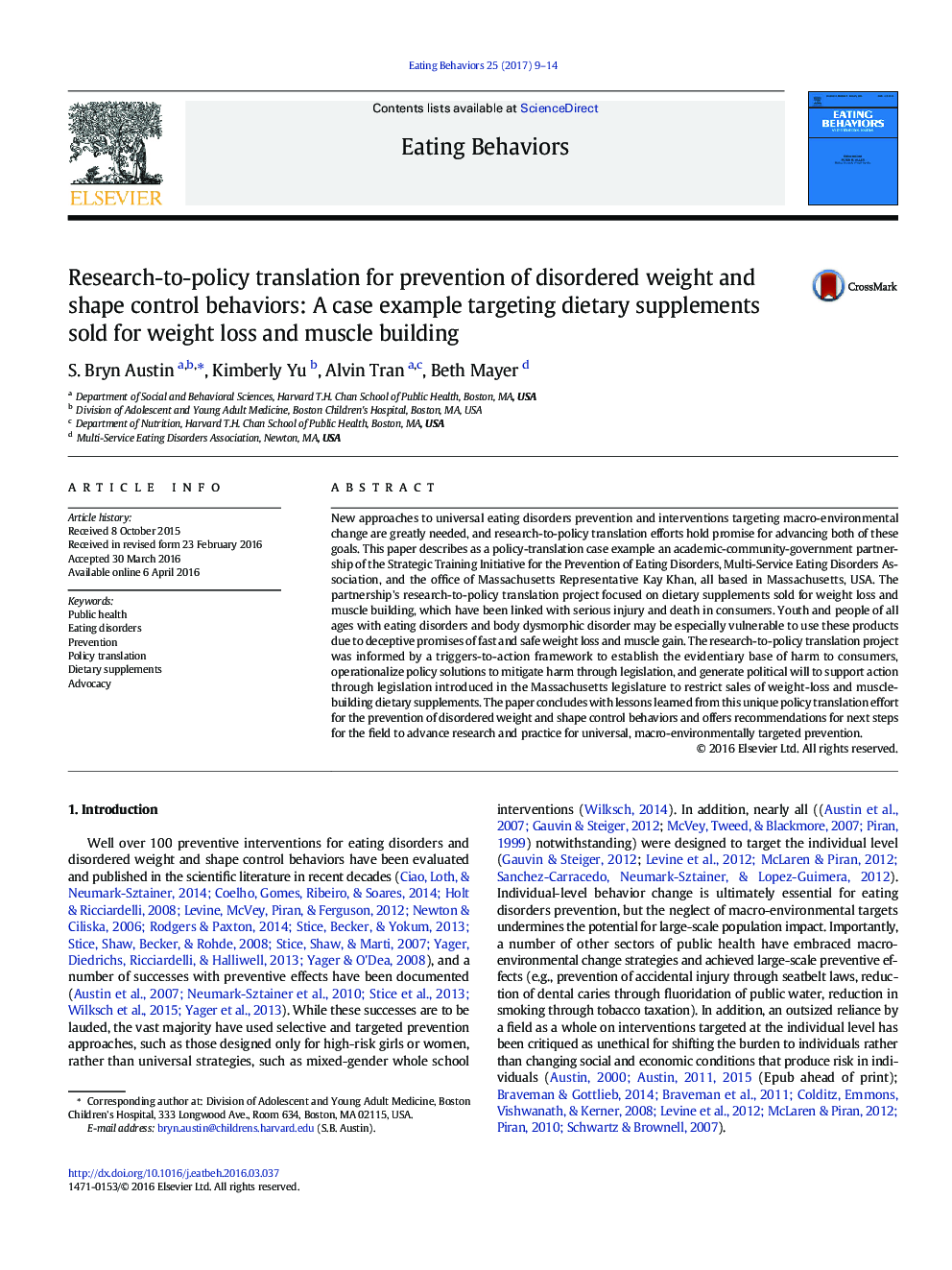| Article ID | Journal | Published Year | Pages | File Type |
|---|---|---|---|---|
| 5038767 | Eating Behaviors | 2017 | 6 Pages |
•Youth with eating disorders are at special risk of harm from weight-loss supplements.•We addressed the problem of dietary supplements through a research-to-policy translation project.•We followed a triggers-to-action framework to build political will for policy change.•Our academic-community-government partnership led to a new bill in a U.S. state legislature.
New approaches to universal eating disorders prevention and interventions targeting macro-environmental change are greatly needed, and research-to-policy translation efforts hold promise for advancing both of these goals. This paper describes as a policy-translation case example an academic-community-government partnership of the Strategic Training Initiative for the Prevention of Eating Disorders, Multi-Service Eating Disorders Association, and the office of Massachusetts Representative Kay Khan, all based in Massachusetts, USA. The partnership's research-to-policy translation project focused on dietary supplements sold for weight loss and muscle building, which have been linked with serious injury and death in consumers. Youth and people of all ages with eating disorders and body dysmorphic disorder may be especially vulnerable to use these products due to deceptive promises of fast and safe weight loss and muscle gain. The research-to-policy translation project was informed by a triggers-to-action framework to establish the evidentiary base of harm to consumers, operationalize policy solutions to mitigate harm through legislation, and generate political will to support action through legislation introduced in the Massachusetts legislature to restrict sales of weight-loss and muscle-building dietary supplements. The paper concludes with lessons learned from this unique policy translation effort for the prevention of disordered weight and shape control behaviors and offers recommendations for next steps for the field to advance research and practice for universal, macro-environmentally targeted prevention.
